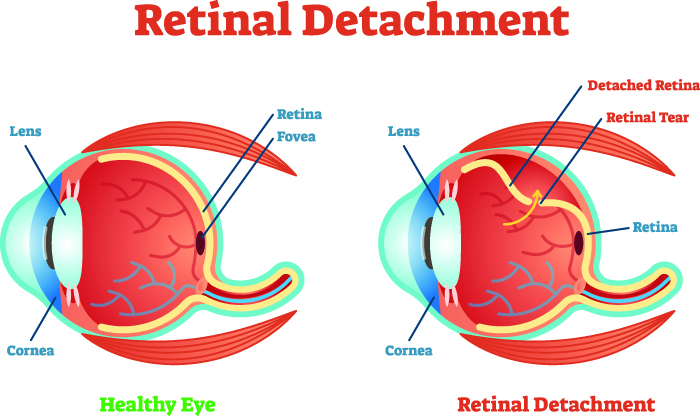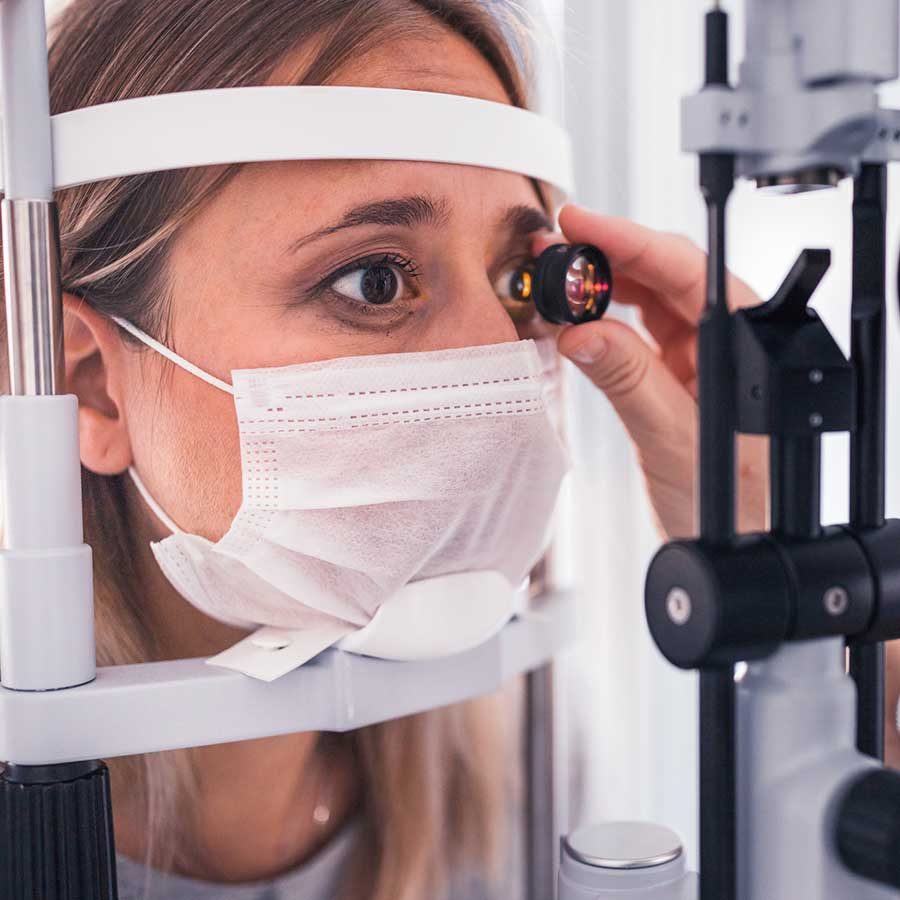Diagnosing retinal detachment involves a series of steps conducted by an ophthalmologist or eye specialist. Here is an outline of the diagnostic process:
- Medical History: The initial step is a detailed discussion of your medical history. The specialist will inquire about your symptoms, prior eye injuries or surgeries, and any underlying health conditions that could be relevant.
- Visual Acuity Test: A standard eye chart is used to assess your vision at various distances, including central and peripheral vision.
- Pupil Dilation: The doctor may administer eye drops to dilate your pupils. This helps in obtaining a better view of the inside of your eye, particularly the retina.
- Slit Lamp Examination: A slit lamp, which is a microscope equipped with a bright light, is employed to examine the front and interior of the eye. This examination is crucial for detecting any abnormalities in the cornea, lens, and vitreous humor.
- Ophthalmoscopy: During this procedure, an ophthalmoscope is used to inspect the retina. This instrument permits a close examination of the back of the eye, allowing the specialist to identify signs of detachment, such as tears or holes.
- Ultrasound: In situations where the retina is obstructed from view due to factors like bleeding, ultrasound may be utilized. This non-invasive procedure employs sound waves to create an image of the interior of the eye.
- Optical Coherence Tomography (OCT): OCT is a non-invasive imaging technique that provides high-resolution, cross-sectional images of the retina. It aids in assessing the extent and location of retinal detachment.
- Visual Field Testing: This test measures peripheral vision and helps identify blind spots or areas of vision loss that are characteristic of retinal detachment.
Based on the results of these diagnostic tests, the ophthalmologist will determine the presence of retinal detachment, as well as its type and severity. This information is critical for selecting the most appropriate treatment approach.
In the event of a confirmed retinal detachment, immediate surgical intervention is typically required to prevent further vision loss. The choice of surgical technique depends on the specific characteristics of the detachment, such as its location and extent. Your eye specialist will discuss treatment options and expected outcomes with you.
For more eye-related queries, Consult Dr. Vaidya,one of the Best Eye doctor in Mumbai at Vaidya Eye Hospital.




